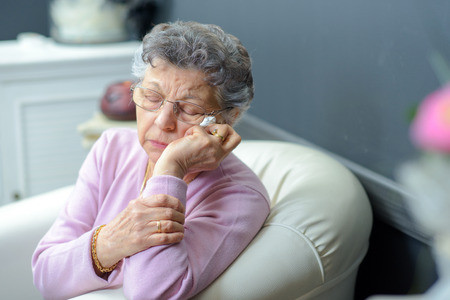The iSavta Team | 13.11.2019

It is essential for your elderly patient to get enough rest and sleep to restore energy, help the recovery process and improve morale. Get to know his/her sleep patterns and in times of wakefulmess or restlessness, try to determine whether the cause is physical discomfort, anxiety or environmental disturbances. Sleeping pills should be taken only if prescribed by a doctor.
Sleep Patterns
Your elderly patient should not become overtired, as this may hinder her recovery. Try to keep to her natural pattern of sleeping, and encourage her to follow this as closely as possible. If she is prevented from taking a customary nap in the afternoon, for example, she may want to sleep in the evening, which may then make it difficult for her to sleep during the night. Make sure that you are not deprived of sleep as well. If you get very tired, try to adapt your own sleep patterns around those of your elderly patient: when she sleeps, use the opportunity to rest yourself.
Send Through Rewire and Experience the Safest and the Cheapest Remittance Center Today!
Physical and Psychological Discomfort
If your elderly patient cannot get comfortable or relax, she may have difficulty sleeping. It is important that her bed is comfortable, that any pain or physical discomfort is minimised and that she is not kept awake by anxiety. Make sure she has everything that she needs to hand, night-time medication and a drink, for example; this may help to minimise length of time that she is kept awake. She may also like a book so that she can read herself to sleep.
Solving Physical and Emotional Problems
| Problem | Why It Occurs | Solutions |
| Hunger and Thirst | If a person wakes in the middle of the night, hunger and thirst can prevent her getting back to sleep. | Make sure she has enough to eat and drink during the day. Place a drink and snack on her bedside table at night. |
| Physical Discomfort | The bed or bedding itself may be uncomfortable and aggravate physical problems. Wakefulness may also be caused by physical discomfort such as aching limbs, stiff joints or a full bladder. | Make your patient comfortable in bed. Check that bedding is not too heavy, sheets are not wrinkled or wet and pillows are a comfortable height. An immobile person should be provided with a toilet aid, such as a commode chair. |
| Pain | Pain in the middle of the night may cause psychological as well as physical discomfort. | Make sure that she has taken the correct dosage of pain-relief medicine and that any painkillers required are to hand. |
| Anxiety | A person may be kept awake because she is depressed or worried about her illness or a forthcoming operation. |
Encourage your patient to talk about her concerns. Find ways for her to relax before bedtime, such as reading. |
Environmental Disturbances
A change of environment may cause your elderly patient to feel very disoriented, which can have a disruptive effect on sleep patterns. To minimise this, try to keep her bedtime routine as familiar as possible. If you have a very noisy neighbors, explain to them that your patient needs to rest; you will find that most people will be sympathetic. It may also be worthwhile purchasing earplugs for your patient - especially if she likes to sleep during the day or goes to bed early.
Minimising Environmental Disturbances
| Problem | Why It Occurs | Solutions |
| Light | The room is too light or too dark at night. | If it is too dark, open the curtains or leave a light on. If it is too light, put up thicker curtains or line existing ones. |
| Odors | If the room has an intrusive smell it can disturb sleep. | Leave a window or door ajar so air can circulate. Use potpourri or lavender to freshen the room. |
| Change of Environment | Your elderly patient is not in her usual room, or has been relocated to a different building altogether. | If your patient is staying elsewhere, ensure that the rest of her bedtime routine remains as undisturbed as possible to minimise any disruption caused. |
| Room Temperature | Your patient is too hot or too cold at night. |
Open or close windows and adjust heating and bedding as necessary; check her temperature. |
| Noise | Noises outside and inside the house can disturb normal sleep patterns. | Try to remove the source of the noise; failing that, "soundproof" the room by stuffing rolled-up sheet or towel along the gap under the door. |


